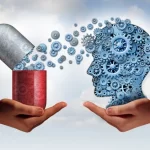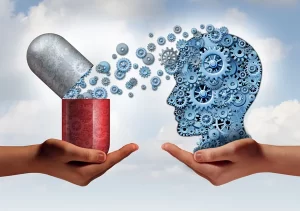Depending on the specific type of STI, infections may also be transmitted through nonsexual skin-to-skin contact, needles, or breastfeeding. STIs may be referred to as sexually transmitted diseases (STD) or venereal diseases (VD). Anyone sexually active is at risk for contracting an STI. Those who are sexually active should protect their health by being aware of potential side effects, prevention tactics, and treatment methods.
Types of Sexually Transmitted Infections.
Here are the most common STIs and the symptoms that affect men and women in the United States.
Chlamydia
Symptoms. Symptoms of chlamydia include painful urination, abnormal discharge, pain during intercourse in women, and abnormal bleeding in women.
Treatment: Chlamydia can usually be treated with antibiotics. You may be able to take all the antibiotics in one day—or over a week—depending on the type of medication you are prescribed.
Gonorrhea
Symptoms. Gonorrhea can cause painful urination, abdominal or pelvic pain, a pus-like discharge in men, and abnormal vaginal bleeding.
Treatment. Gonorrhea is a common STI that can be treated with antibiotics. Your doctor may advise that you follow up for testing to make sure the infection is completely gone.
Trichomoniasis (Trich)
Symptoms. Trichomoniasis is often accompanied by a foul-smelling vaginal discharge, painful urination, painful intercourse, and genital redness, burning, or itching.
Treatment: Trichomoniasis can usually be treated with a single dose of antibiotic medication. If you test positive for trichomoniasis, both you and your partner will need to be treated. Intercourse should be avoided until the infection is cured.
Genital Herpes
Symptoms. Symptoms of genital herpes include pain, itching, bumps, blisters, ulcers, and scabs in the infected area.
Treatment: There is no cure for genital herpes. Your doctor may prescribe antiviral medication to control symptoms during an outbreak.
Human Papillomavirus (HPV)
Symptoms. Most people with HPV don’t have any signs of health problems. Sometimes HPV can cause genital warts and cancer.
Treatment: There is no cure for the virus, but warts can be treated as they reappear over time.
Syphilis
Symptoms. Syphilis can cause sores, skin rashes, fever, swollen lymph glands, sore throat, patchy hair loss, headaches, weight loss, muscle aches, and fatigue.
Treatment: Primary and secondary syphilis can usually be treated with penicillin. There are alternatives available for those who are allergic to penicillin.
If you think you have an STI—or have questions about transmittable diseases— request an appointment with a health expert today.
















More Stories
Did you know that volunteering helps with mental health?
Prepare for extreme heat in Arizona
GI Alliance Supports Women’s Health Awareness Month: A Focus on Colorectal Health
Do you like sleeping with wet hair?
Adopting vegetarian or vegan diets
Eye damage after eclipse